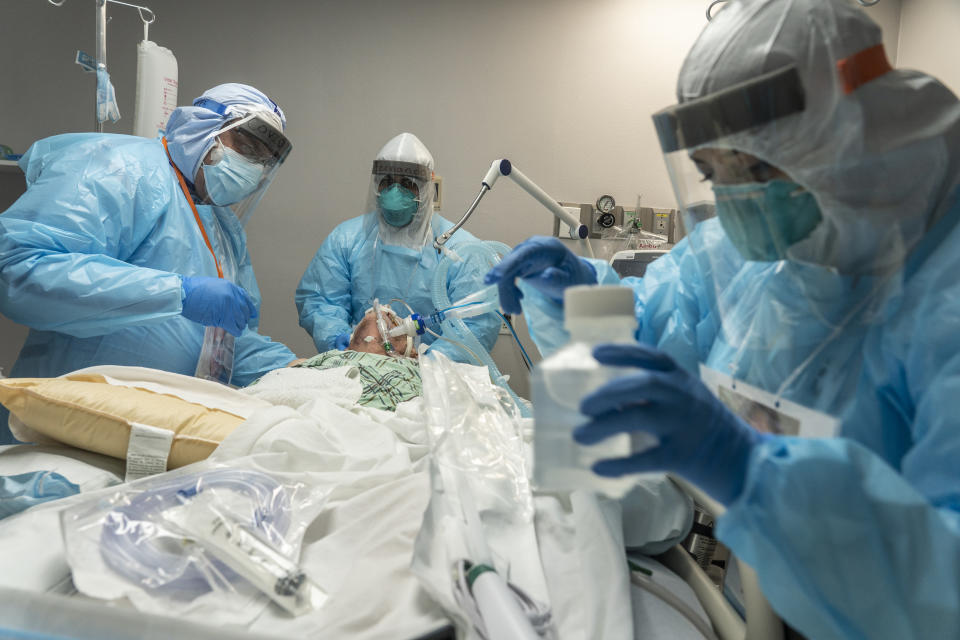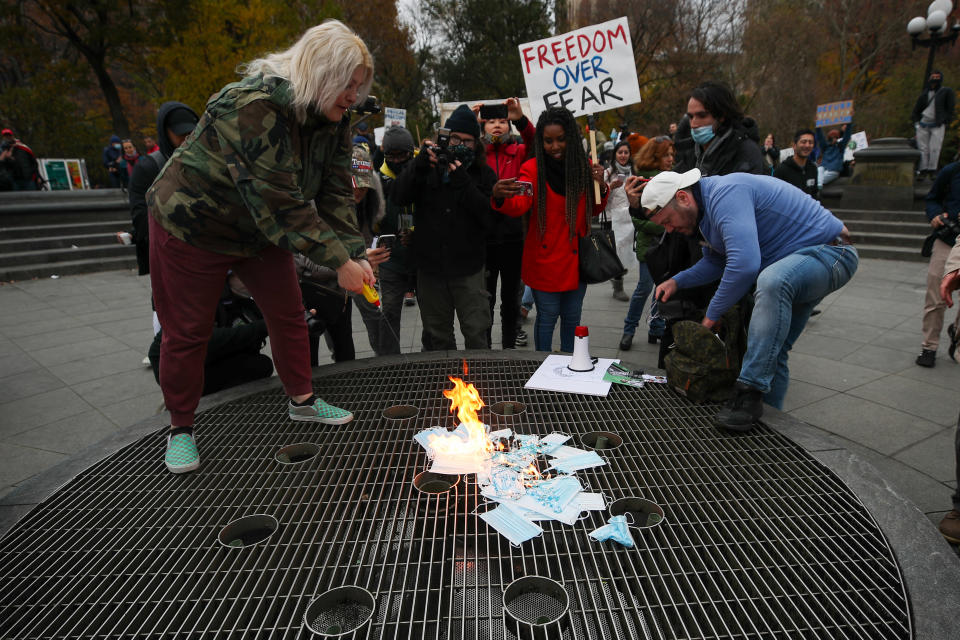CDC pushes for universal masking to stop coronavirus
WASHINGTON — In guidance published on Friday, the Centers for Disease Control and Prevention called on all Americans to wear face masks to prevent the spread of the coronavirus. The recommendation comes as hospitals across the nation fill up with people sickened by COVID-19, the disease caused by the coronavirus.
The onset of winter is expected to worsen the situation, even if a vaccine is available within weeks, and the directive appears to have been issued in response to that reality. “With colder weather, more time spent indoors, the ongoing U.S. holiday season, and silent spread of disease, with approximately 50% of transmission from asymptomatic persons, the United States has entered a phase of high-level transmission,” it says.

There have been more than 14 million coronavirus infections in the United States, and nearly 280,000 deaths. Face masks remain one of the best tools to fight the coronavirus, which is transmitted through droplets spread by people when they cough, sneeze or even talk loudly.
When the pandemic first started, public health officials downplayed the need to wear face masks and in fact discouraged their use, fearing shortages. But as production of masks increased, and the science on airborne transmission became clearer, the CDC began to shift its messaging.
Today’s recommendation is the most forthright yet.
“Consistent and correct use of face masks is a public health strategy critical to reducing respiratory transmission,” the CDC says. It goes on to say that because first responders need N95 respirators, and those respirators remain in short supply, ordinary Americans should wear “nonvalved, multilayer cloth masks or nonmedical disposable masks.”
A recent study by Linsey Marr, a leading aerosol scientist at Virginia Tech, showed that a properly manufactured and correctly worn cloth face mask was highly effective in protecting people from both contracting and spreading the coronavirus.
The guidance also calls for a “community-level plan for distribution of face masks to specific populations, such as those who might experience barriers to access.”
Friday’s guidance also calls for less controversial measures such as social distancing, limiting access to public indoor spaces, contact tracing and limiting travel. While some people disagree with those measures, none have been subject to the kind of vehemence that face masks have engendered.
The new mask recommendation represents less a departure than an amplification. CDC officials have been arguing in favor of masks for months, only to have their recommendations challenged by President Trump and his supporters.
In July, CDC Director Robert Redfield and two colleagues published an editorial in the Journal of the American Medical Association titled “Universal Masking to Prevent SARS-CoV-2 Transmission — The Time Is Now.” The editorial noted that “resistance continues” in parts of American society.
That resistance was evident in August at the Republican National Convention, where many attendees declined to wear facial coverings.
Redfield made his case again before Congress during congressional testimony in September. Holding up a surgical-grade face covering, he said that such a face mask “is more guaranteed to protect me against COVID than when I take a COVID vaccine.” Referencing the then unknown efficacy of a coronavirus vaccine, Redfield went on to say, “If I don’t get an immune response, the vaccine’s not going to protect me. This face mask will.” (Vaccine trial results published in November have shown vaccines to be about 95 percent effective, but that doesn’t obviate the need to wear masks, especially since most Americans will not be vaccinated until the spring.)
At the time, Trump rebuked Redfield, and spoke of the CDC director’s “incorrect information.” Later that month, Republicans gathered in the White House Rose Garden to celebrate the nomination of Judge Amy Coney Barrett to the Supreme Court. Masks were a rarity and many high-profile officials subsequently fell ill, leading some to brand the celebration a “superspreader” event.
Trump’s own bout with COVID-19 did not appreciably change his views on face masks. Shortly after recovering, he told journalist Savannah Guthrie at an NBC News town hall that 85 percent of people who wore face masks still caught the coronavirus. This was, in fact, incorrect information, which the president appears to have gleaned from right-wing sources that have worked to undermine the nation’s pandemic response.

Trump’s loss in November’s presidential election appears to have emboldened the CDC to some degree, especially since President-elect Joe Biden is an advocate of face masks. A mask-specific brief published in late November by the CDC says that implementing “universal masking policies can help avert future lockdowns, especially if combined with other non-pharmaceutical interventions such as social distancing, hand hygiene, and adequate ventilation.”
On Thursday, Biden said he would ask all Americans to wear face masks for the first 100 days of his administration. Although the federal government has limited power to enforce such measures, seeing a sitting president wear a face mask could convince reluctant Americans to do so themselves.
_____
Read more from Yahoo News:

 Yahoo Finance
Yahoo Finance 

